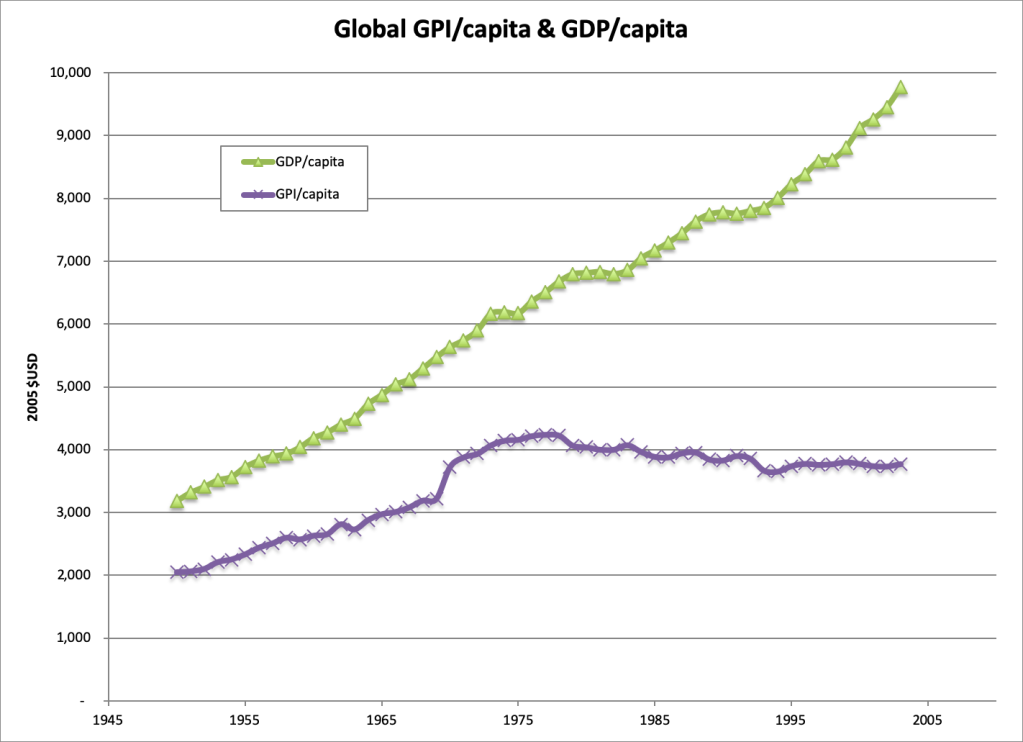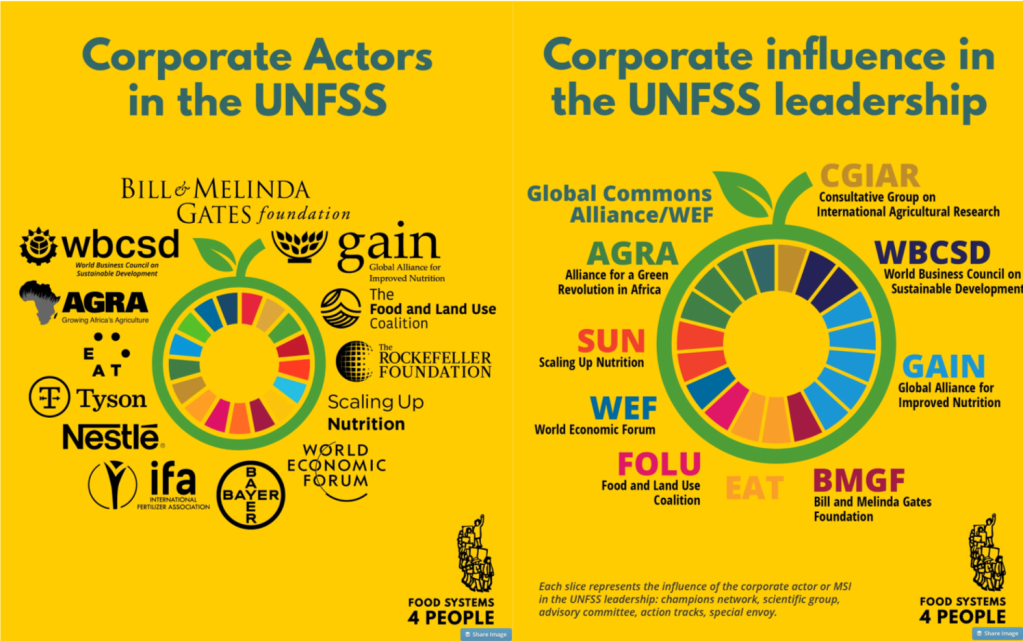It’s time to face the fact that resolving the climate crisis will require a fundamental shift away from our growth-based, corporate-dominated global system.
Originally published October 9, 2021 in Salon
The global conversation regarding climate change has, for the most part, ignored the elephant in the room. That’s strange, because this particular elephant is so large, obvious, and all-encompassing that politicians and executives must contort themselves to avoid naming it publicly. That elephant is called capitalism, and it is high time to face the fact that, as long as capitalism remains the dominant economic system of our globalized world, the climate crisis won’t be resolved.
As the crucial UN climate talks known as COP26 approach in early November, the public is becoming increasingly aware that the stakes have never been higher. What were once ominous warnings of future climate shocks wrought by wildfires, floods, and droughts have now become a staple of the daily news. Yet governments are failing to meet their own emissions pledges from the Paris agreement six years ago, which were themselves acknowledged to be inadequate. Increasingly, respected Earth scientists are warning, not just about the devastating effects of climate breakdown on our daily lives, but about the potential collapse of civilization itself unless we drastically change direction.
The elephant in the room
And yet, even as humanity faces perhaps the greatest existential crisis in its species’ history, the public debate on climate barely mentions the underlying economic system that brought us to this point and which continues to drive us toward the precipice. Ever since its emergence in the seventeenth century, with the creation of the first limited liability shareholder-owned corporations, capitalism has been premised on viewing the planet as a resource to exploit — its overriding objective to maximize profits from that exploitation as rapidly and extensively as possible. Current mainstream strategies to resolve our twin crises of climate breakdown and ecological overshoot without changing the underlying system of growth-based global capitalism are structurally inadequate.
The idea of “green growth” is promulgated by many development consultants, and is even incorporated in the UN’s official plan for “sustainable development,” but has been shown to be an illusion. Ecomodernists, and others who stand to profit from growth in the short-term, frequently make the argument that, through technological innovation, aggregate global economic output can become “absolutely decoupled” from resource use and carbon emissions — permitting limitless growth on a finite planet. Careful rigorous analysis, though, shows that this hasn’t happened so far, and even the most wildly aggressive assumptions for greater efficiency would still lead to unsustainable consumption of global resources.
The primary reason for this derives ultimately from the nature of capitalism itself. Under capitalism — which has now become the default global economic context for virtually all human enterprise — efficiency improvements intended to reduce resource usage inevitably become launchpads for further exploitation, leading paradoxically to an increase, rather than decrease, in consumption.
This dynamic, known as the Jevons paradox, was first recognized back in the nineteenth century by economist William Stanley Jevons, who demonstrated how James Watts’ steam engine, which greatly improved the efficiency of coal-powered engines, paradoxically caused a dramatic increase in coal consumption even while it decreased the amount of coal required for any particular application. The Jevons paradox has since been shown to be true in an endless variety of domains, from the invention in the nineteenth century of the cotton gin which led to an increase rather than decrease in the practice of slavery in the American South, to improved automobile fuel efficiency which encourages people to drive longer distances.
When the Jevons paradox is generalized to the global marketplace, we begin to see that it’s not really a paradox at all, but rather an inbuilt defining characteristic of capitalism. Shareholder-owned corporations, as the primary agents of global capitalism, are legally structured by the overarching imperative to maximize shareholder returns above all else. Although they are given the legal rights of “personhood” in many jurisdictions, if they were actually humans they would be diagnosed as psychopaths, ruthlessly pursuing their goal without regard to any collateral damage they might cause. Of the hundred largest economies today, sixty-nine are transnational corporations, which collectively represent a relentless force with one overriding objective: to turn humanity and the rest of life into fodder for endlessly increasing profit at the fastest possible rate.
Under global capitalism, this dynamic holds true even without the involvement of transnational corporations. Take bitcoin as an example. Originally designed after the global financial meltdown of 2008 to wrest monetary power from the domination of central banks, it relies on building trust through “mining,” a process that allows anyone to verify a transaction by solving increasingly complex mathematical equations and earn new bitcoins as compensation. A great idea — in theory. In practice, the unfettered marketplace for bitcoin mining has led to frenzied competition to solve ever more complex equations, with vast warehouses holding “rigs” of advanced computers consuming massive amounts of electricity, with the result that the carbon emissions from bitcoin processing are now equivalent to that of a mid-size country such as Sweden or Argentina.
An economy based on perpetual growth
The relentless pursuit of profit growth above all other considerations is reflected in the world’s stock markets, where corporations are valued not by their benefit to society, but by investors’ expectations of their growth in future earnings. Similarly, when aggregated to national accounts, the main proxy used to measure the performance of politicians is growth in Gross Domestic Product (GDP). Although it is commonly assumed that GDP correlates with social welfare, this is not the case once basic material requirements have been met. GDP merely measures the rate at which society transforms nature and human activity into the monetary economy, regardless of the ensuing quality of life. Anything that causes economic activity of any kind, whether good or bad, adds to GDP. When researchers developed a benchmark called the Genuine Progress Indicator (GPI), which incorporates qualitative components of well-being, they discovered a dramatic divergence between the two measures. GPI peaked in 1978 and has been steadily falling ever since, even while GDP continues to accelerate.
Since 1978, Genuine Progress has been falling even while GDP continues to increase. Credit: Kubiszewski et al., Beyond GDP: Measuring and achieving global genuine progress
In spite of this, the possibility of shifting our economy away from perpetual growth is barely even considered in mainstream discourse. In preparation for COP26, the UN’s Intergovernmental Panel on Climate Change (IPCC) modeled five scenarios exploring potential pathways that would lead to different global heating outcomes this century, ranging from an optimistic 1.5°C pathway to a likely catastrophic 4.5°C track. One of their most critical variables is the amount of carbon reduction accomplished through negative emissions, relying on massive implementation of unproven technologies. According to the IPCC, staying under 2°C of global heating — consistent with the minimum target set by the 2015 Paris agreement — involves a heroic assumption that we will suck 730 billion metric tonnes of carbon out of the atmosphere this century. This stupendous amount is equivalent to roughly twenty times the total current annual emissions from all fossil fuel usage. Such an assumption is closer to science fiction than any rigorous analysis worthy of a model on which our civilization is basing its entire future. Yet, even as the IPCC appears willing to model humanity’s fate on a pipe dream, not one of their scenarios explores what is possible from a graduated annual reduction in global GDP. Such a scenario was considered by the IPCC community to be too implausible to consider.
This represents a serious lapse on the part of the IPCC. Climate scientists who have modeled planned reductions in GDP show that keeping global heating below 1.5°C this century is potentially within reach under this scenario, with greatly reduced reliance on speculative carbon reduction technologies. Prominent economists have shown that a carefully managed “post-growth” plan could lead to enhanced quality of life, reduced inequality, and a healthier environment. It would, however, undermine the foundational activity of capitalism — the pursuit of endless growth that has led to our current state of obscene inequality, impending ecological collapse, and climate breakdown.
The profit-based path to catastrophe
As long as this elephant in the room remains unspoken, our world will continue to careen toward catastrophe, even as politicians and technocrats shift from one savior narrative to another. Along with the myth of “green growth,” we are told that a solution lies in putting monetary valuations on “ecosystem services” and incorporating them into business decisions — even though this approach has been shown to be deeply flawed, frequently counterproductive, and ultimately self-defeating. A wetlands, for example, might have value in protecting a city from flooding. However, if it were drained and a swanky new resort built on the reclaimed land, this could be more lucrative. Case closed.
The new moniker arising from the corporate titans at the World Economic Forum is “stakeholder capitalism”: an inviting term that seems to imply that stakeholders other than investors will play a role in setting corporate priorities, but actually refers to a profoundly anti-democratic process whereby corporations assume increasingly large roles in global governance. This month, the UN Food Systems Summit was essentially taken over by the same giant corporations, including Nestlé and Bayer, that are largely responsible for the very problems the summit was intended to grapple with — which led to a widespread boycott by hundreds of civil society and Indigenous groups.
The UN Food Systems Summit was essentially controlled by corporate interests. Source: Food Systems 4 People
As net-zero targets decades away are formally announced at COP26, built implicitly on a combination of corporate procrastination and speculative technologies, we can only expect the climate crisis to continue to worsen. Ultimately, as negative emissions technologies fail to meet their grandiose expectations, the same voices that currently promote reliance on them will lend support to the techno-dystopian idea of geoengineering — vast, planet-altering engineering projects designed to temporarily manipulate the climate to defer a climate apocalypse. A leading geoengineering candidate, financed by Bill Gates, involves spraying particles into the stratosphere to cool the Earth by reflecting the Sun’s rays back into space. The risks are enormous, including the likelihood of causing extreme shifts in precipitation around the world. Additionally, once begun, it could never be stopped without immediate catastrophic rebound heating; it would not prevent the oceans from further acidifying; and may turn the blue sky into a perpetual dull haze. In spite of these concerns, geoengineering is beginning to get discussed at UN meetings, with publications such as The Economist predicting that, since it wouldn’t disrupt continued economic growth, it’s more likely to be implemented than the drastic, binding cuts in emissions that would head off climate disaster.
There is an alternative
Why is the elephant in the room so rarely mentioned in mainstream discourse? One reason is that, since the collapse of communism and the parallel rise of neoliberalism beginning in the 1980s, it is assumed that “there is no alternative,” as Margaret Thatcher famously declared. Even committed green advocates, such as the Business Green group, are quick to dismiss criticism of our growth-based economic system as “knee-jerk anti-capitalist agitprop.” But the conventional dichotomy between capitalism and socialism, to which such conversations inevitably devolve, is no longer helpful. Old-fashioned socialism was just as poised to consume the Earth as capitalism, differing primarily in how the pie should be carved up.
There is, however, an alternative. A wide range of progressive thinkers are exploring the possibilities of replacing our destructive global economic system with one that offers potential for sustainability, greater fairness, and human flourishing. Proponents of degrowth show that it is possible to implement a planned reduction of energy and resource use while reducing inequality and improving human well-being. Economic models, such as Kate Raworth’s “doughnut economics” offer coherent substitutes for the classical outdated framework that ignores fundamental principles of human nature and humanity’s role within the Earth system. Meanwhile, large-scale cooperatives, such as Mondragon in Spain, demonstrate that it’s possible for companies to provide effectively for human needs without utilizing a shareholder-based profit model.
Another reason people give for ignoring the elephant in the room, even when they know it’s there, is that we don’t have time for structural change. The climate emergency is already upon us, and we need to focus on actions that can occur right now. This is true, and nothing in this article should be taken as a reason to avoid the drastic and immediate changes required in business and consumer practices. Indeed, they are necessary — but insufficient. Ultimately, our global civilization must begin a transformation to one that is based not on building wealth through extraction, but on foundational principles that could create the conditions for long-term flourishing on a regenerated Earth — an ecological civilization.
Even in the short term, there are innumerable steps that can be taken to steer our civilization toward a life-affirming trajectory. Around the world Indigenous people on the frontline of the climate emergency desperately need support in defending the biodiverse ecosystems in which they are embedded against assaults from extractive corporations. A growing campaign is under way to make the wholesale destruction of natural living systems a criminal act by establishing a law of ecocide—prosecutable like genocide under the International Criminal Court. The powers of transnational corporations themselves need to be addressed, ultimately by requiring their charters to be converted to a triple bottom line of people, planet, and profits, and subject to rigorous enforcement powers.
The transformation we need may take decades, but the process must begin now with the clear and explicit recognition that capitalism itself needs to be supplanted by a system based on life-affirming values. Don’t expect to see any discussion of these issues in the formal proceedings of COP26. But, turn your attention outside the hallowed halls and you’ll hear the voices of those who are standing up for life’s continued flourishing on Earth. It’s only when their ideas are discussed seriously in the main chambers of a future COP that we can begin to hold authentic hope that our civilization may finally be turning away from the precipice toward which it is currently accelerating.
Teaser photo credit: By Hanabusa Itchō – This image is available from the United States Library of Congress's Prints and Photographs divisionunder the digital ID cph.3g08725.This tag does not indicate the copyright status of the attached work. A normal copyright tag is still required. See Commons:Licensing for more information., Public Domain, https://commons.wikimedia.org/w/index.php?curid=2265247








